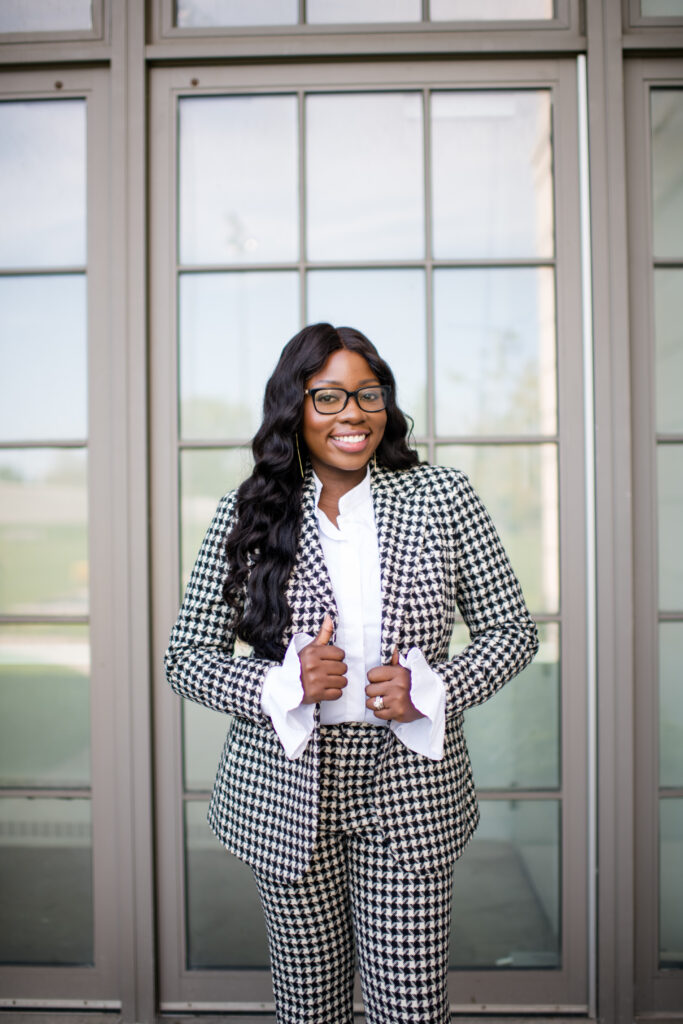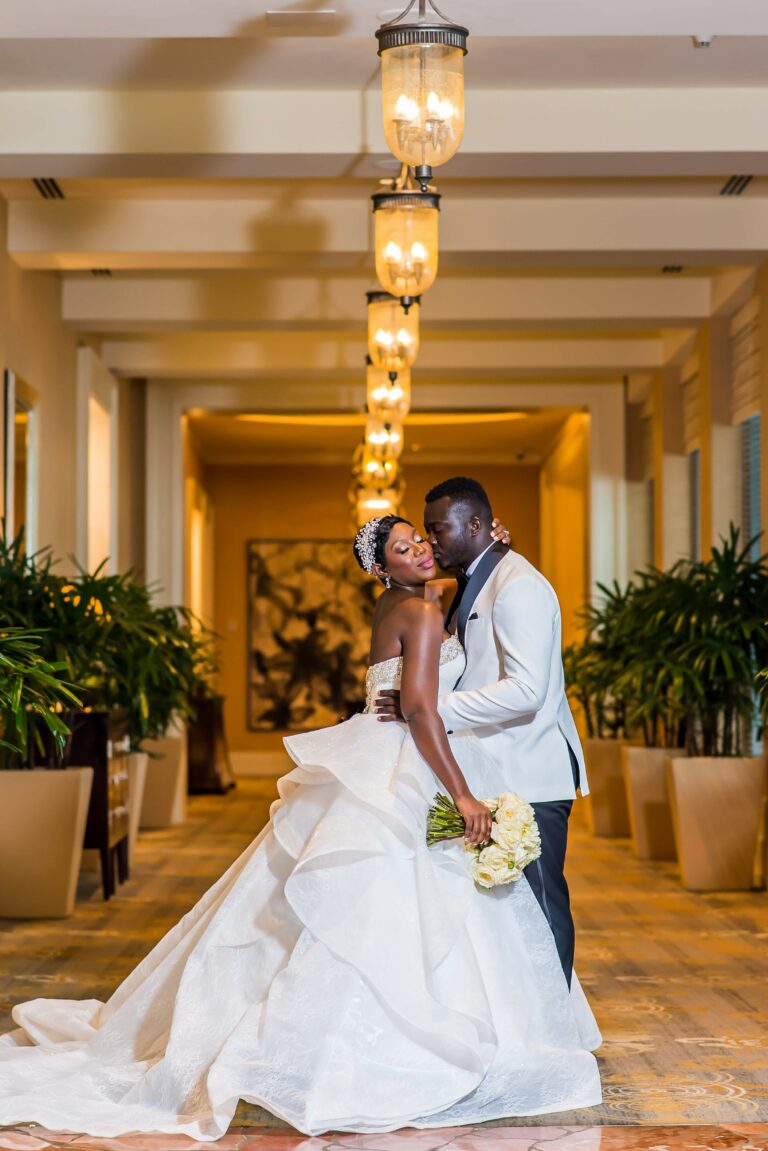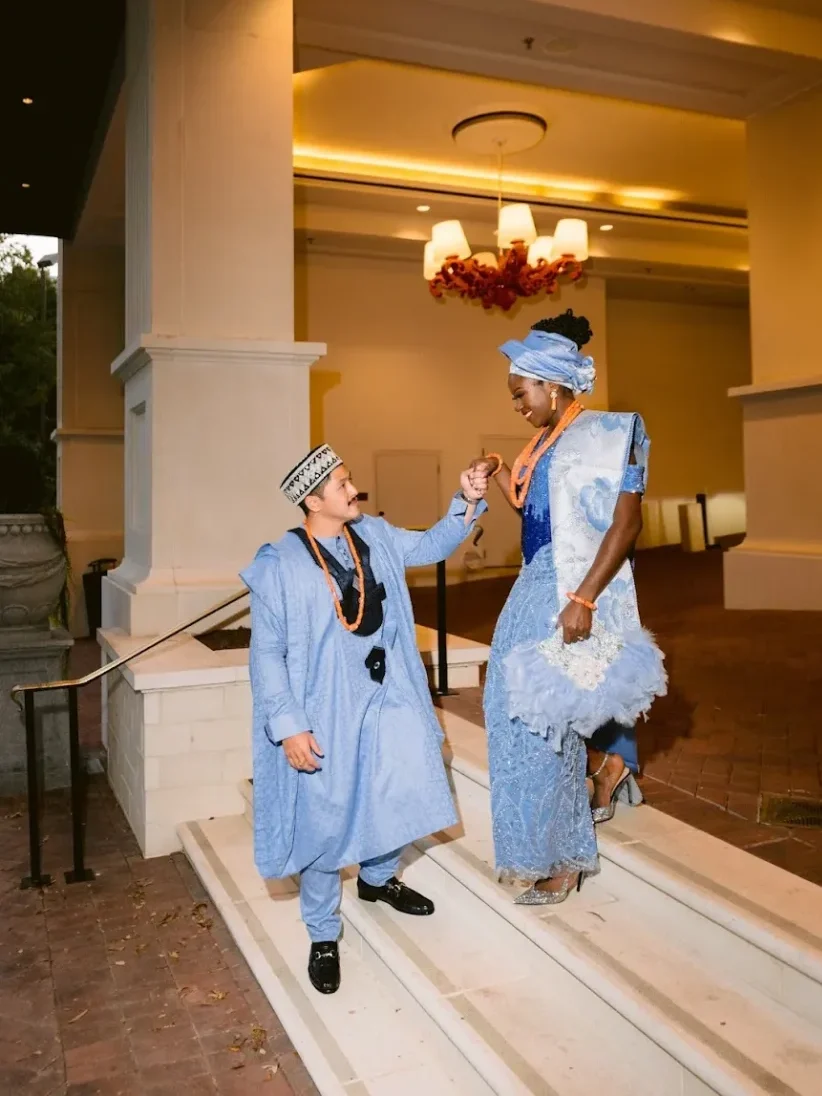
Love is beautiful and marrying a Nigerian is a beautiful adventure— one you’re definitely going to want to prepare for. If you thought you knew what to expect, think again! Nigerian weddings are vibrant, loud, full of tradition, and guaranteed to leave you both amazed and slightly exhausted.
The truth is, when you marry a Nigerian, you’re not just gaining a spouse—you’re stepping into a rich cultural experience that blends family, food, fashion, and more. Nigerian weddings are legendary for their energy, elegance, and unforgettable moments. Whether you’re the bride, groom, or just along for the ride, here’s your ultimate guide to understanding what’s in store.
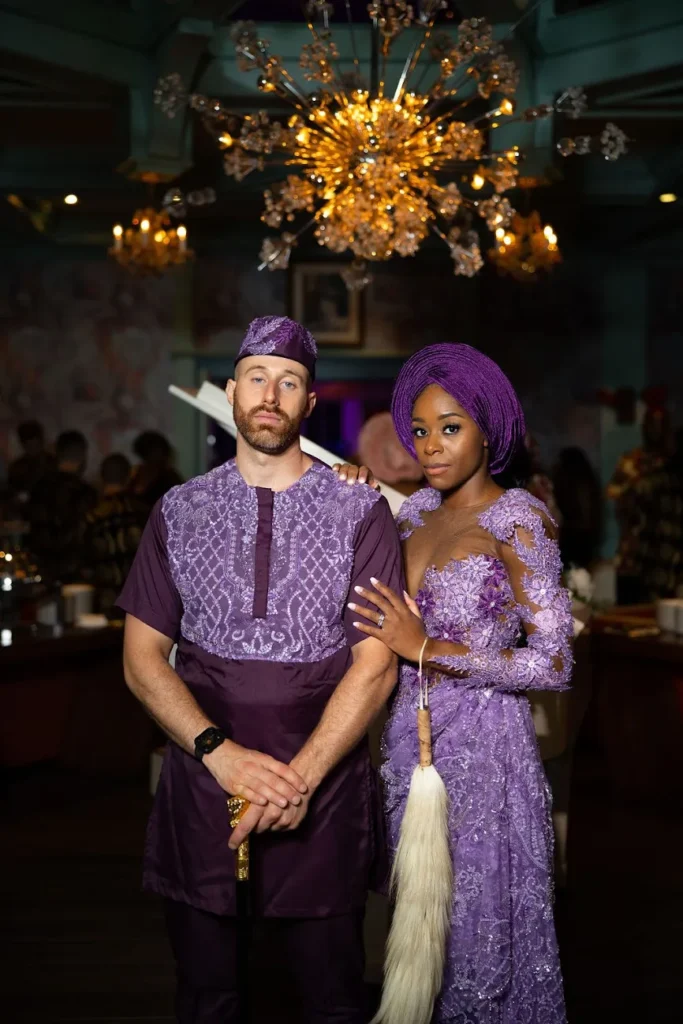
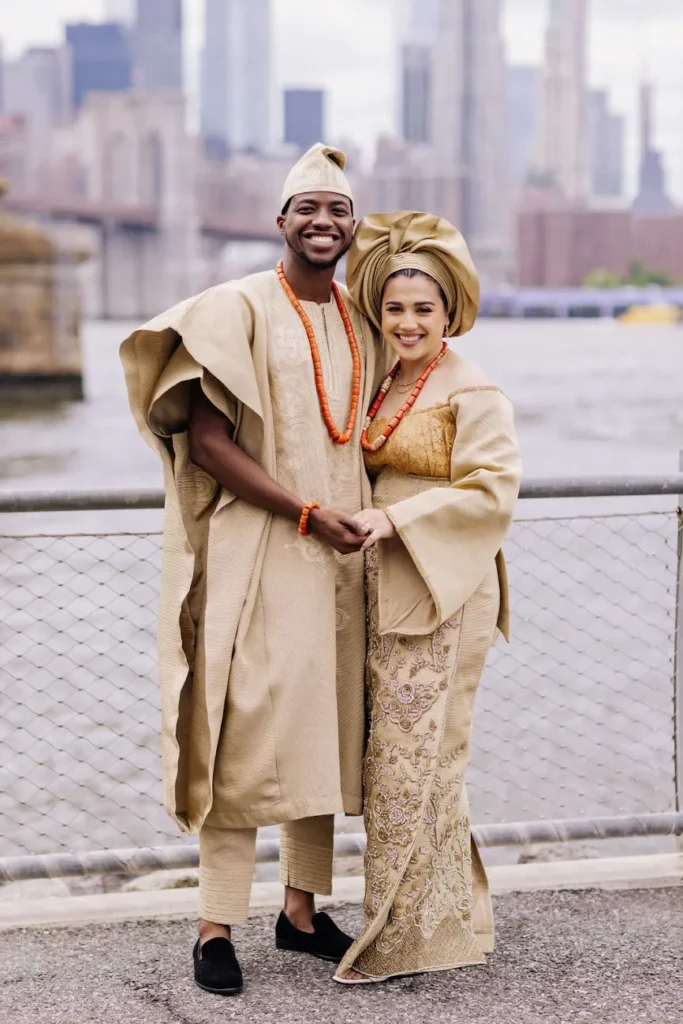
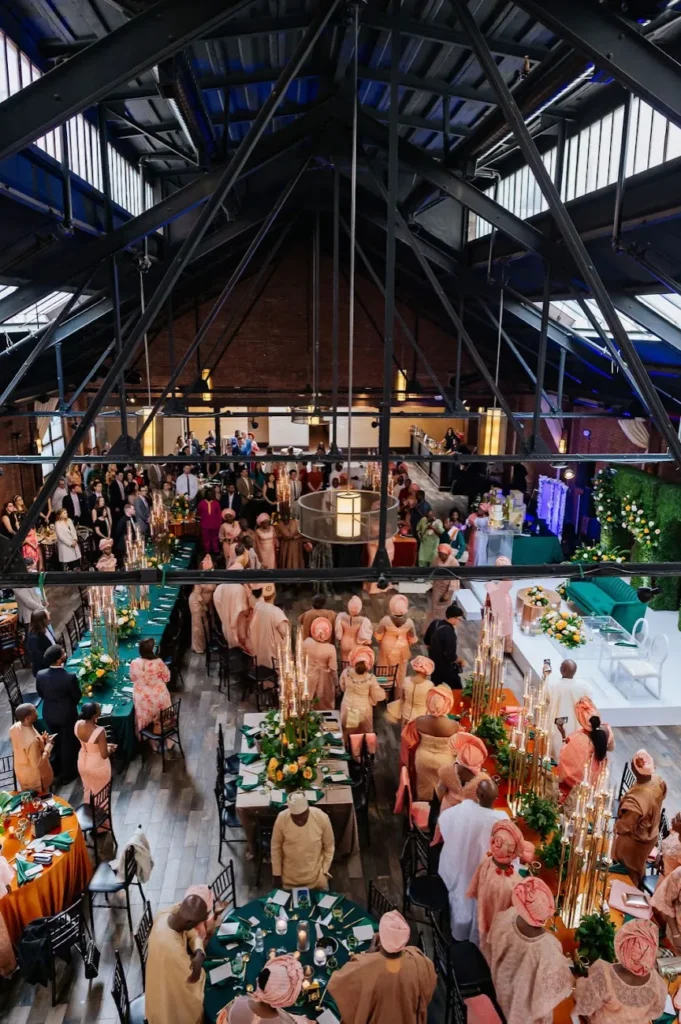
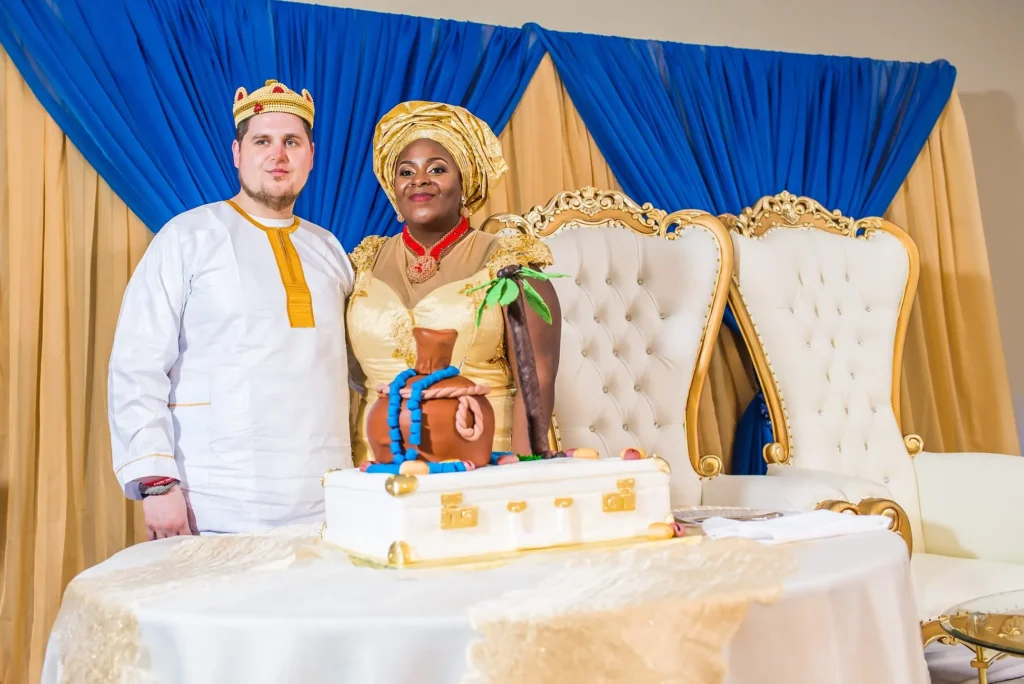
The Guest List is Out of Your Hands
50 guests? Try 500—minimum.
If you’re dreaming of a small, intimate wedding, prepare to adjust those expectations. Nigerian weddings are big—sometimes really big. What starts as a simple invite list can quickly balloon into hundreds of names. Why? Because in Nigerian culture, weddings are about community.
Your partner’s mom? She’s inviting her church group, old classmates, and everyone she’s ever shared a cup of tea with. Cousins you’ve never heard of? Yep, they’re coming too. Don’t be surprised if someone introduces themselves with, “I’m your uncle’s neighbor’s mechanic!” and fully expects a plate of Jollof rice.
Get ready to hear, “Ah ah, you didn’t invite me?” from people you’ve never met in your life. It’s just part of the experience, so embrace it. The more, the merrier!
Pro Tip: Finalizing your guest list should be one of the very first steps in your planning process—even before booking your venue. Nigerian weddings have a way of expanding quickly, and a rough headcount can turn into hundreds (or even thousands) before you know it. Since your guest count directly impacts your venue size, catering, décor, and overall budget, locking in a realistic number early on will save you stress and last-minute surprises down the line. The more prepared you are, the smoother your planning will be!
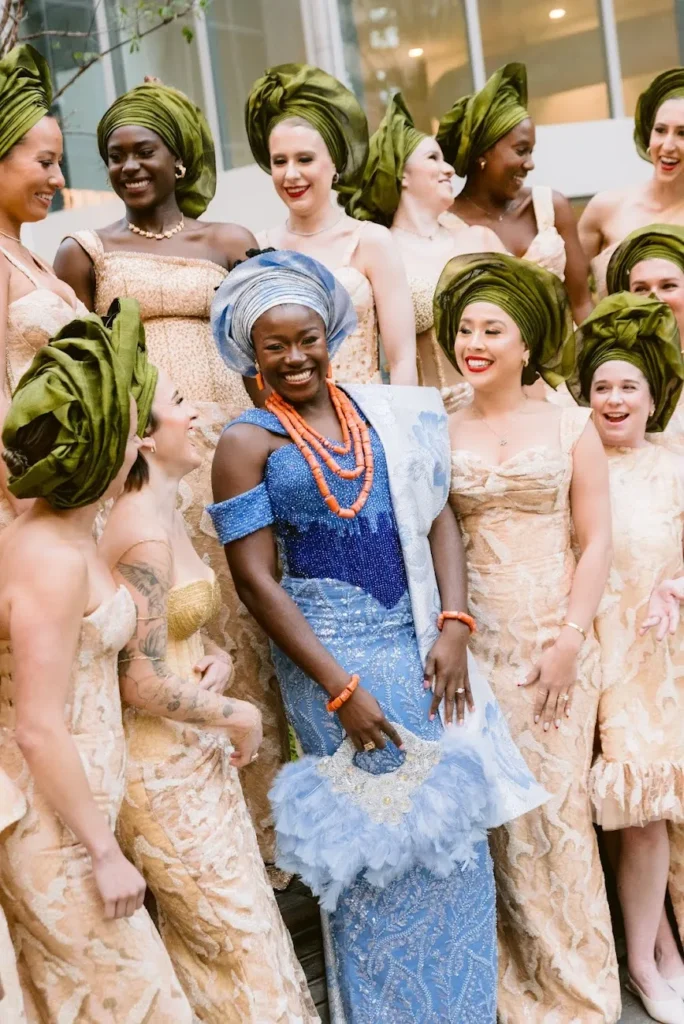
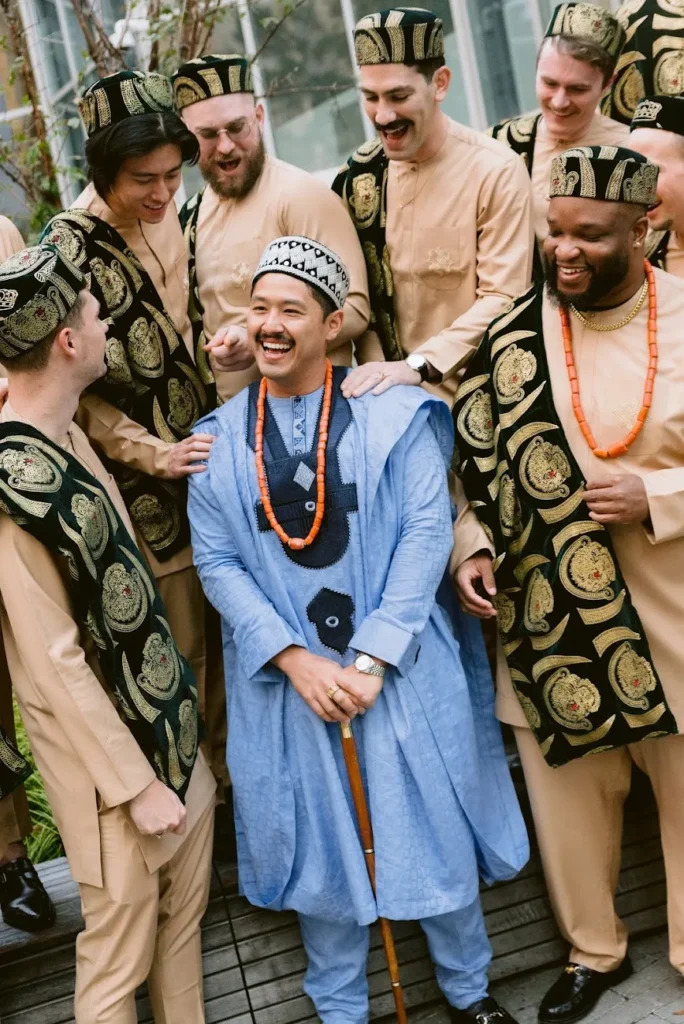
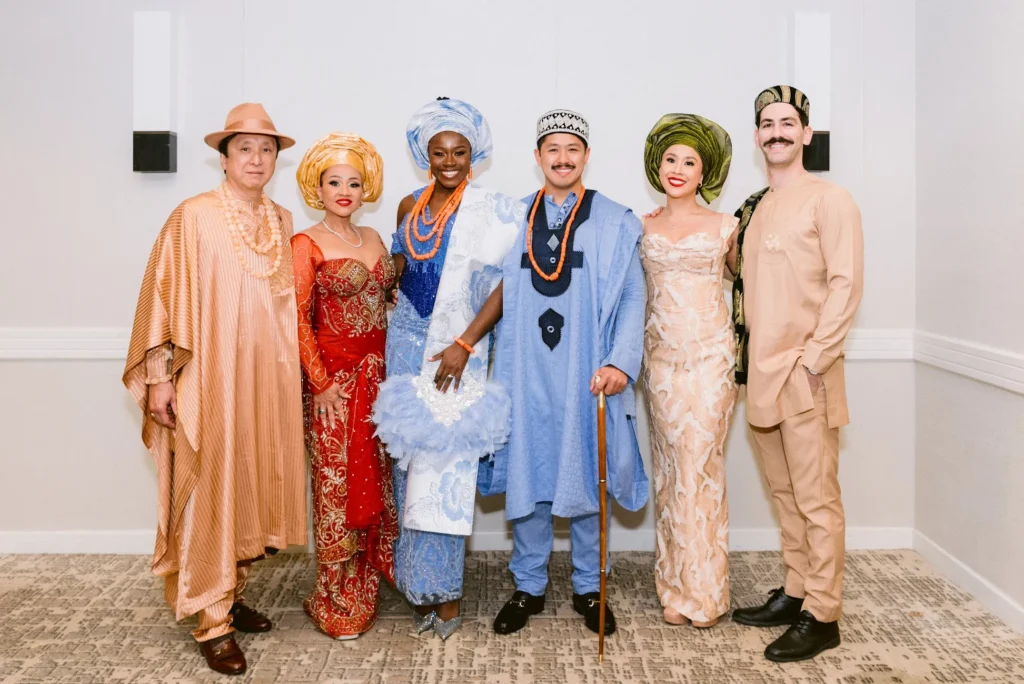
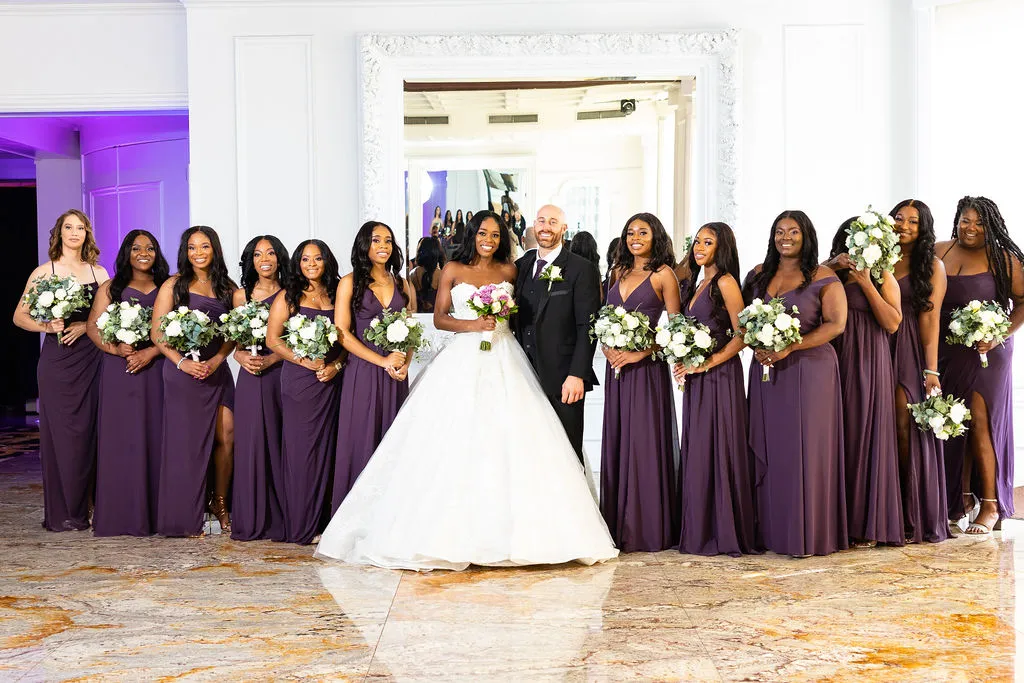
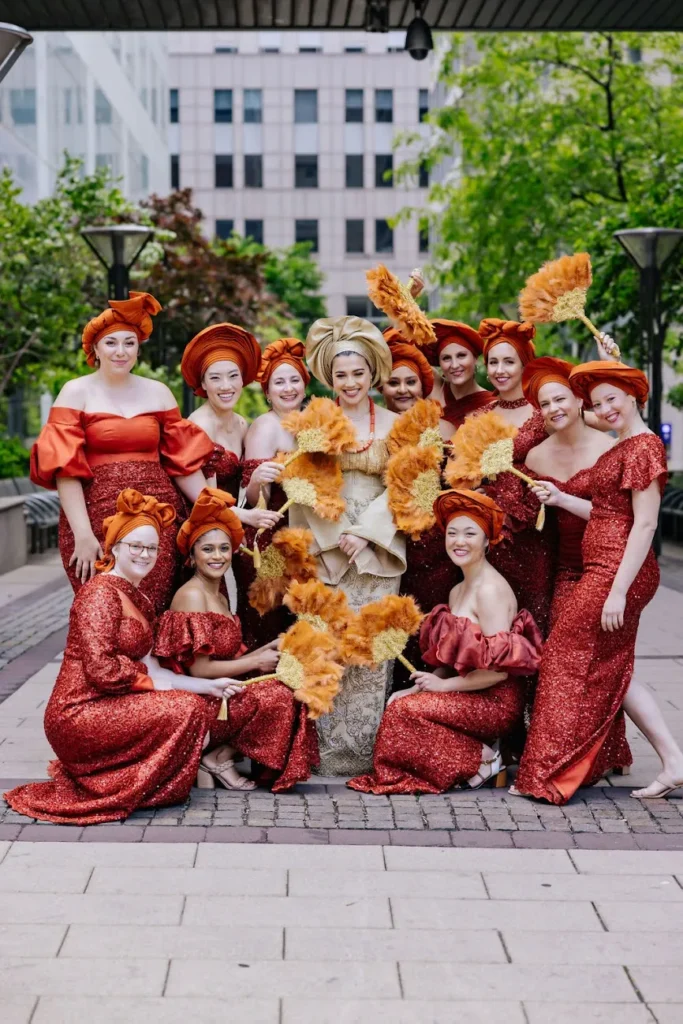
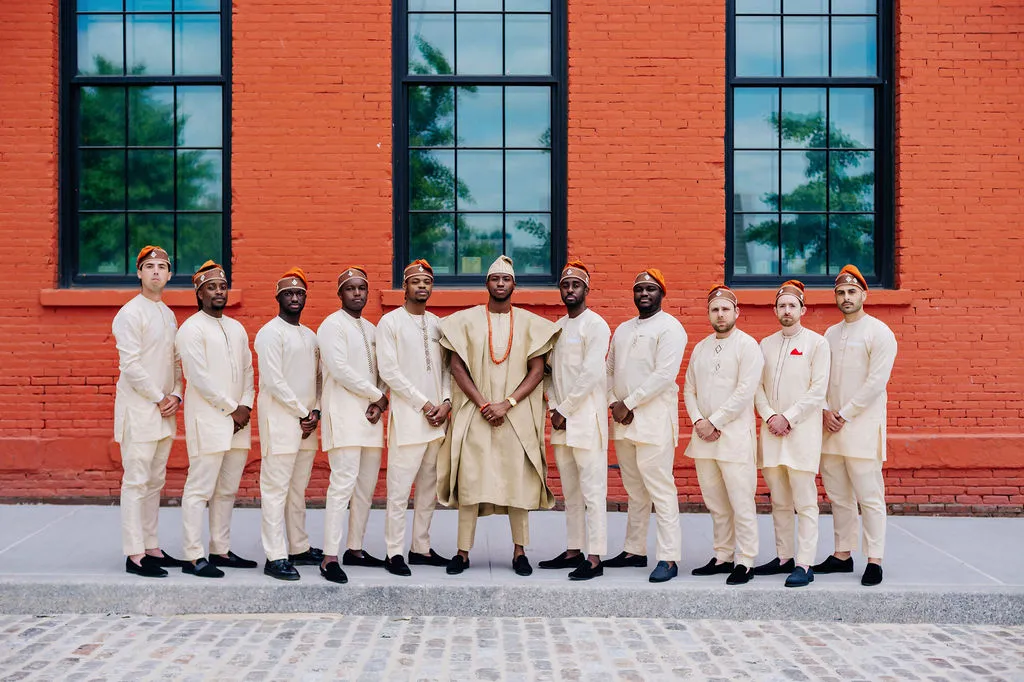
The Introduction Ceremony: The Pre-Wedding Power Move
This isn’t just a casual dinner where families meet—it’s an event.
In Nigerian culture, the introduction ceremony is a formal occasion where both families gather to publicly acknowledge the relationship and begin wedding discussions. While it may feel like a “mini-wedding,” this gathering is deeply symbolic and sets the stage for the main event.
Expect lots of structured greetings, speeches, and formalities. The elders will likely take the lead, exchanging proverbs and prayers that seal the bond between the two families. It’s not uncommon for this ceremony to last for hours—so pace yourself!
Pro Tip: Don’t worry about understanding every cultural reference—just smile, be respectful, and follow your partner’s lead.
Bride Price: It’s Tradition, Not a Purchase
Let’s clear this up right away—the “bride price” is not about buying your spouse.
The bride price, also called a dowry, is a respected cultural tradition that symbolizes gratitude, respect, and the joining of two families. Think of it as a gesture of goodwill rather than a financial transaction.
The bride’s family may present a “list” of items the groom’s family is expected to provide. This list can vary but often includes:
- Yams – A symbol of fertility, prosperity, and abundance
- Palm wine – A traditional drink for celebrations and ceremonies
- Fabric – For beautiful outfits that showcase cultural pride
While the list may sound unusual if you’re not familiar with the tradition, it’s a meaningful part of the experience. Your fiancé’s uncles may even treat the negotiation process like a high-stakes game of Shark Tank, so be prepared for a little back-and-forth.
Pro Tip: Stay calm, smile, and let the elders handle it.
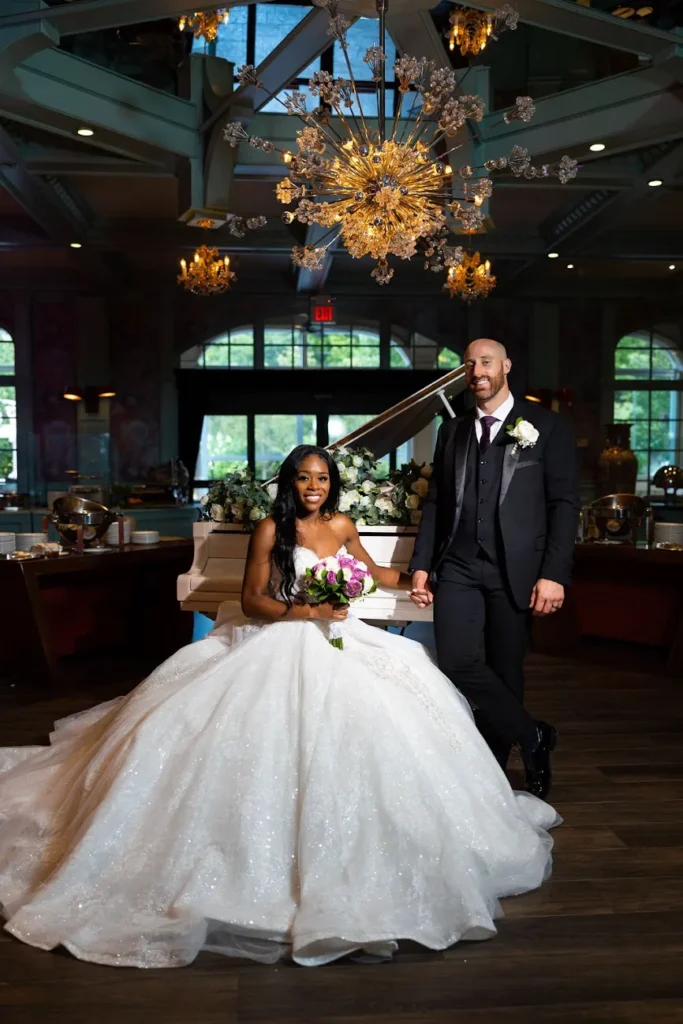
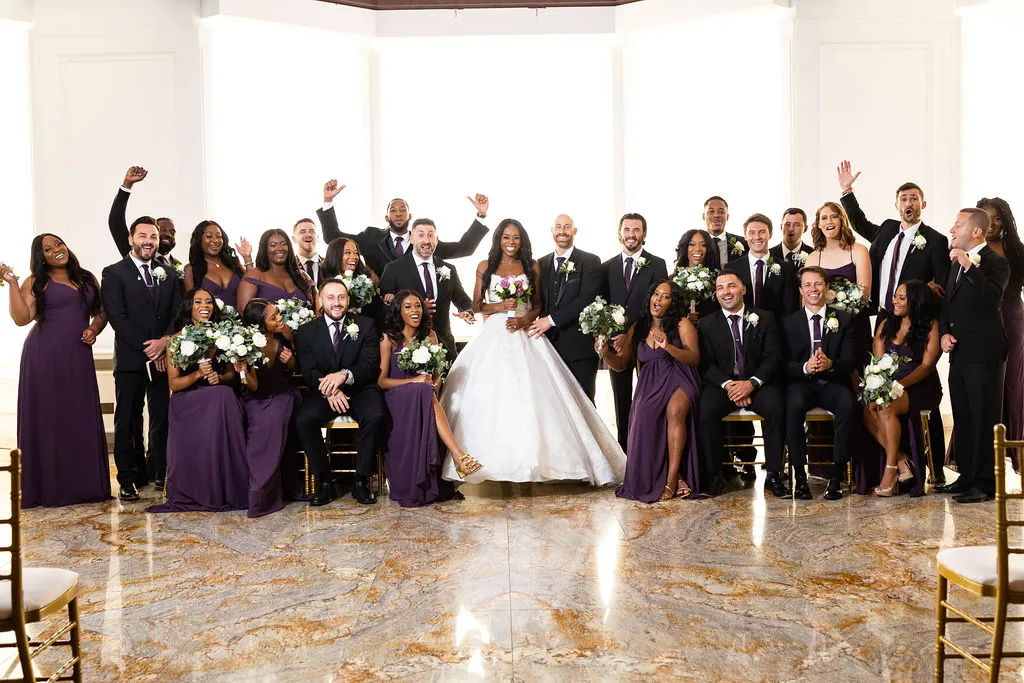
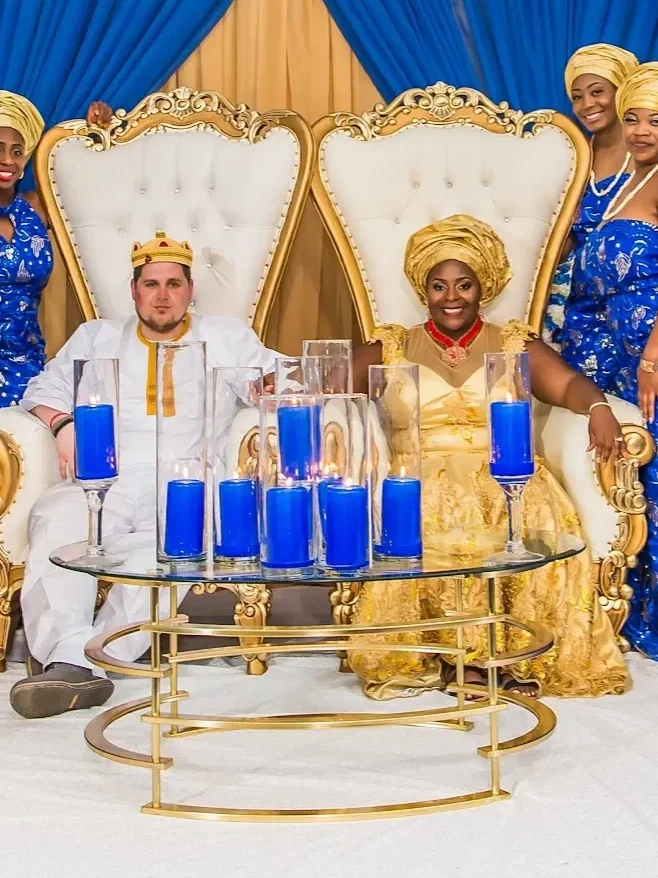
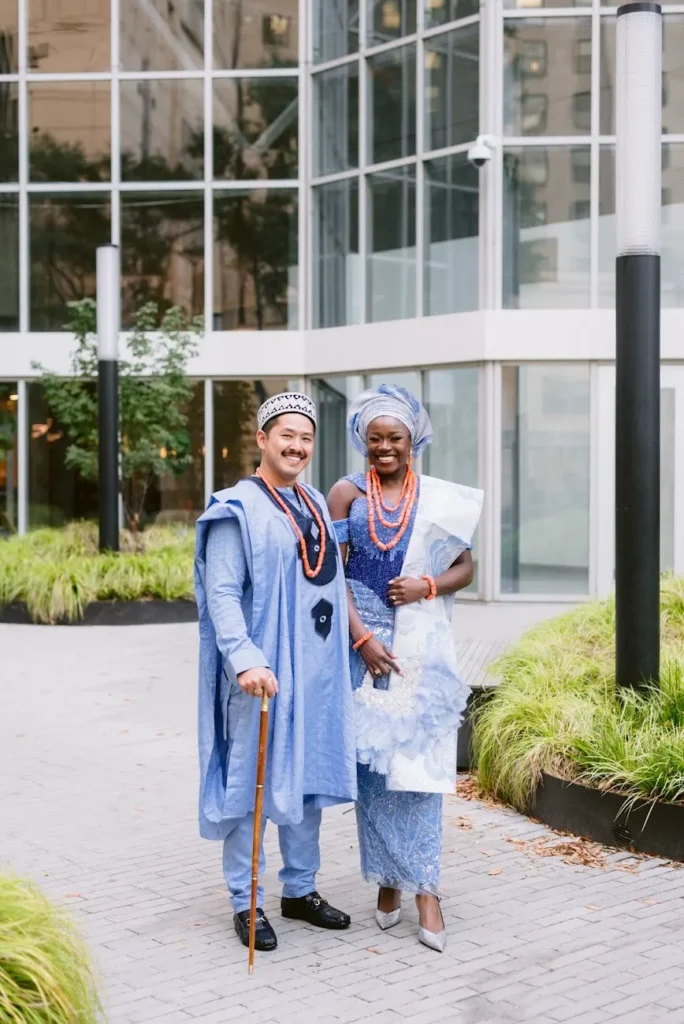
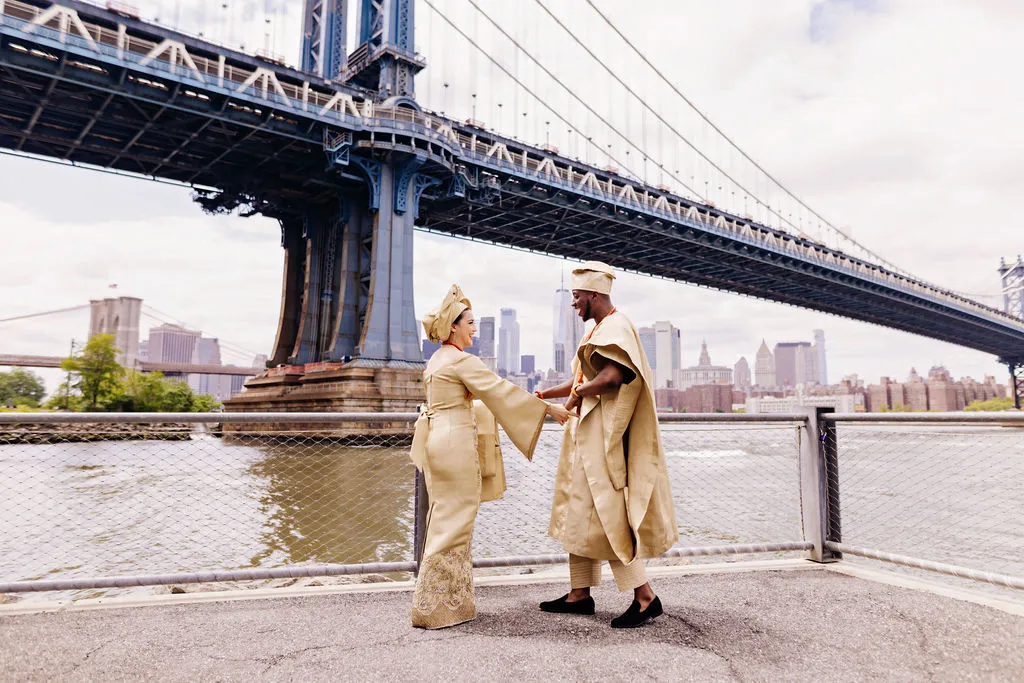
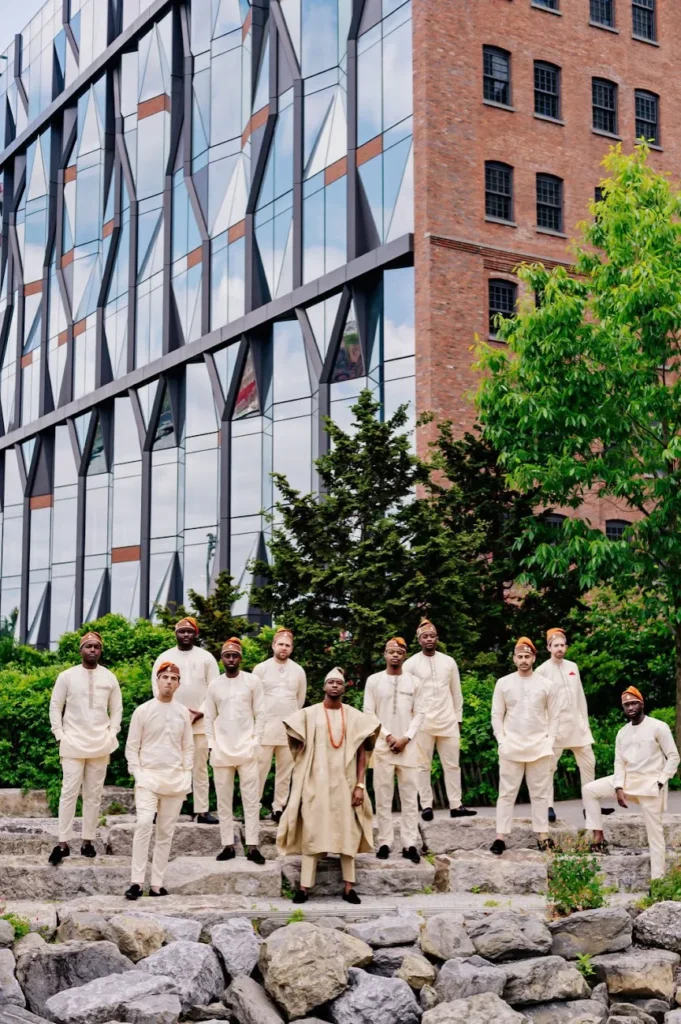
Aso Ebi: The Wedding Uniform You Didn’t Know You Needed
If you’ve never heard of Aso Ebi, buckle up—it’s a big deal.
Aso Ebi is the designated fabric(s) chosen for family and friends to wear, creating a unified look that shows your connection to the couple. It’s less of an outfit and more of a statement.
The colors are bold, the designs can be extravagant, and the pressure to slay is real. Expect sequins, embroidery, and fabric so structured it could stand up on its own. Whether you’re rocking a dramatic gown or a sharp agbada (traditional men’s attire), Aso Ebi ensures that everyone looks fabulous and feels like part of the celebration.
Pro Tip: Get your outfit tailored early and always give the wrong date to the tailor (at least 1 month before you need it)! Last-minute fittings can be stressful.
The Dance Floor is a Financial Investment
At Nigerian weddings, dancing isn’t just about showing off your moves—it’s business.
During key moments like the couple’s entrance or first dance, guests will shower the couple with money in a tradition known as spraying. It’s a joyful gesture meant to bless the couple with prosperity and happiness. The result? The dance floor often looks like a mini cash hurricane.
Pro Tip: Designate a trusted friend or money collector to keep things organized. They’ll gather the sprayed cash so it makes it to the right hands and circulate the money so all guests can get change and continue spraying the couple.
Bonus Tip: Don’t be shy! Nigerians love to hype up dancers, so bring your energy and prepare for some serious fun.
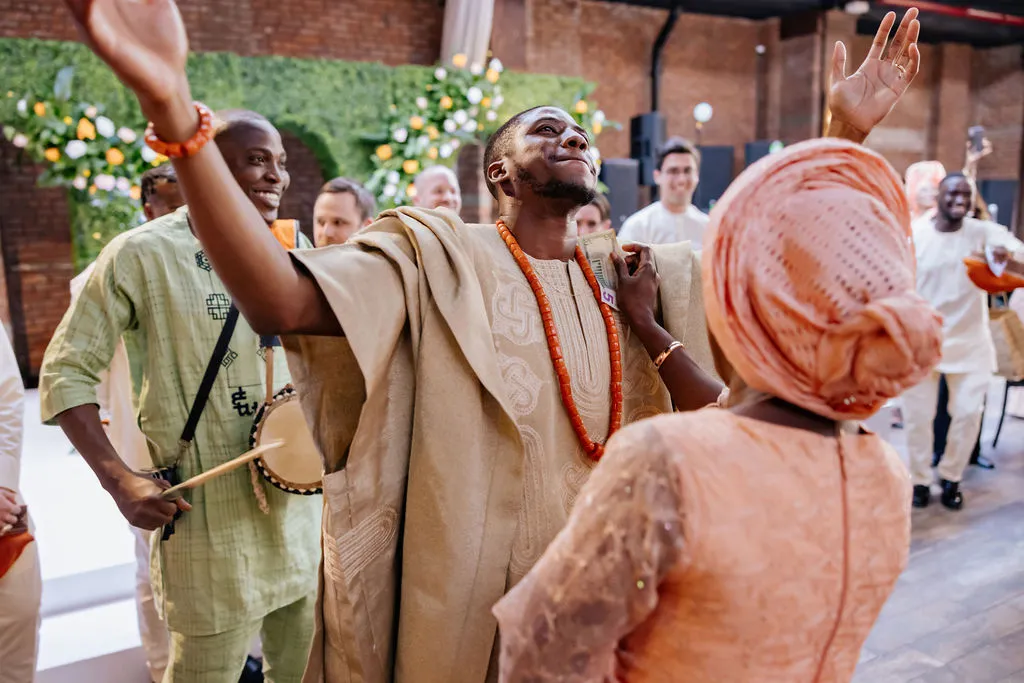
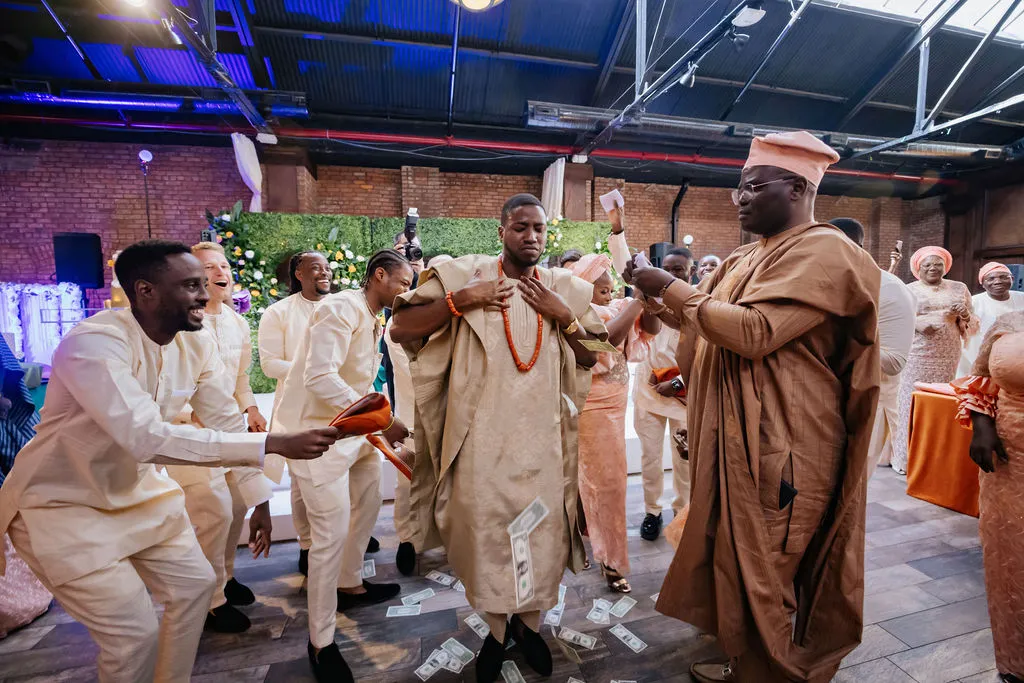
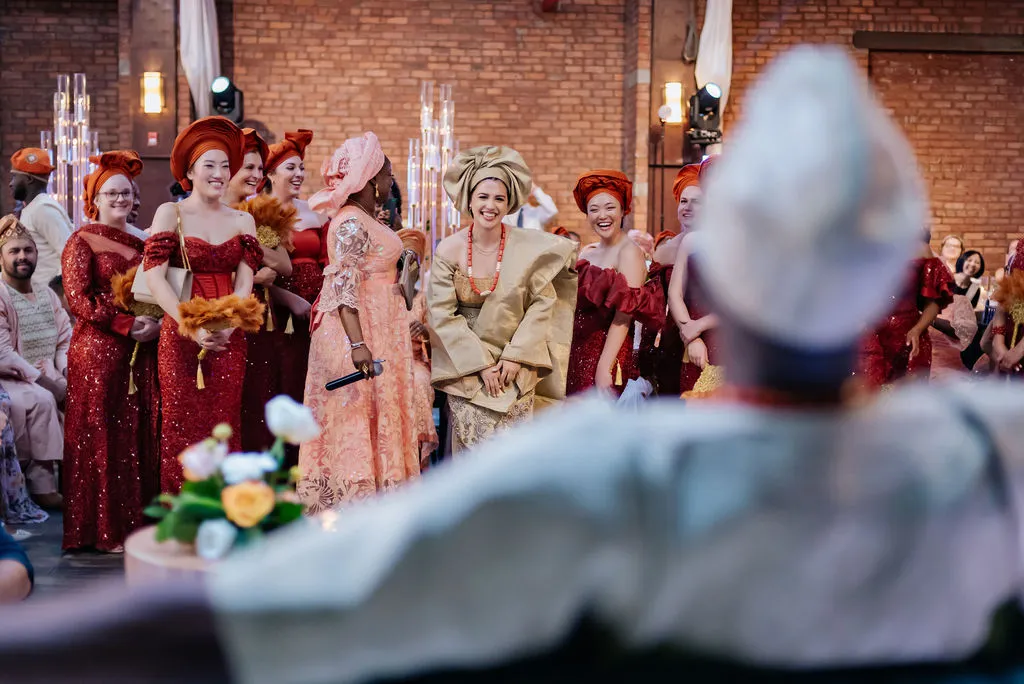
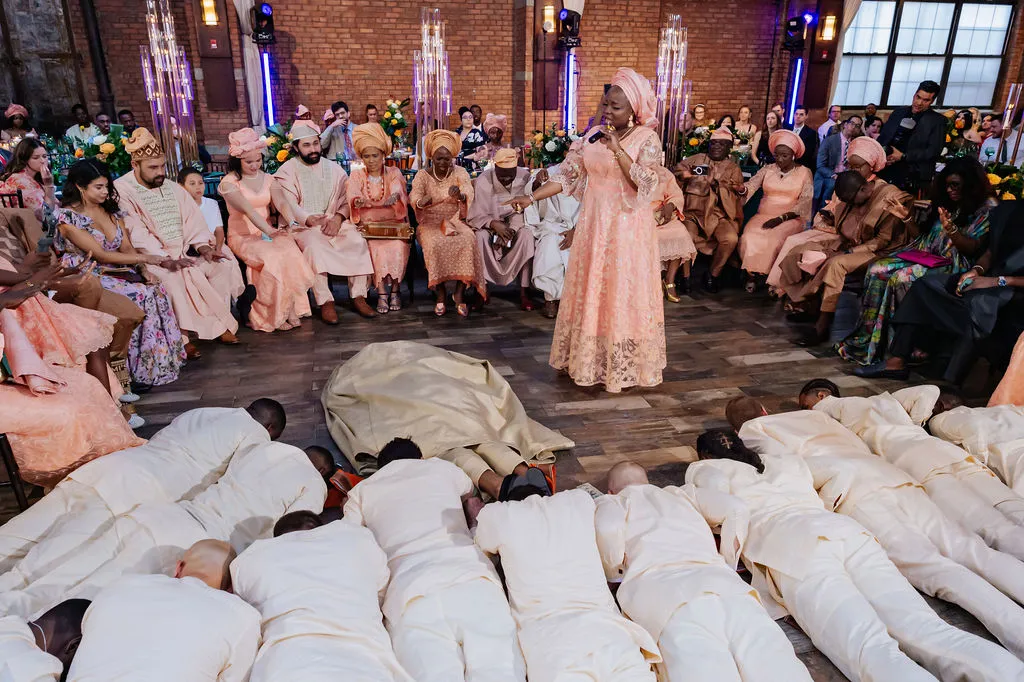
The Food Will Spoil All Other Weddings for You
Once you’ve had Nigerian wedding food, you’ll compare every future wedding meal to it—and nothing will come close.
The lineup is unbeatable:
- Jollof Rice – Smoky, savory, and unforgettable. (Don’t get dragged into the Nigeria vs. Ghana Jollof debate—trust me.)
- Suya – Spicy, grilled meat coated in flavorful spices that will leave you craving more.
- Puff-Puff – Fried dough balls that taste like pure happiness.
Feeling adventurous? Try pepper soup—but fair warning, if you’re not used to spicy food, proceed with caution. Nigerians don’t hold back on heat!
Be Ready for an Auntie to Ask, “So When Are the Babies Coming?”
Nigerians aren’t known for subtlety when it comes to life milestones.
At some point—probably multiple times—an auntie (or five) will corner you and ask, “So when are the babies coming?”
It’s not meant to be rude—it’s just how conversations go. Weddings are seen as the gateway to building a family, and older relatives aren’t afraid to skip the small talk.
Pro Tip: Smile, nod, and change the subject. Trust me, this won’t be the last time you’ll hear that question.
Two Weddings? Possibly. A Marathon? Definitely.
Depending on your partner’s tribe, you may find yourself celebrating two weddings:
- A traditional wedding, rich with cultural rituals, symbolic gifts, and stunning attire.
- A “white” wedding, which follows Western customs with vows, a white gown, and a reception.
- Both are spectacular, both will leave you emotionally (and physically) drained, and both are 100% worth it.
Pro Tip: Pack snacks, have a pair of comfortable shoes to change into, and hydrate—you’re in for a long, unforgettable ride.
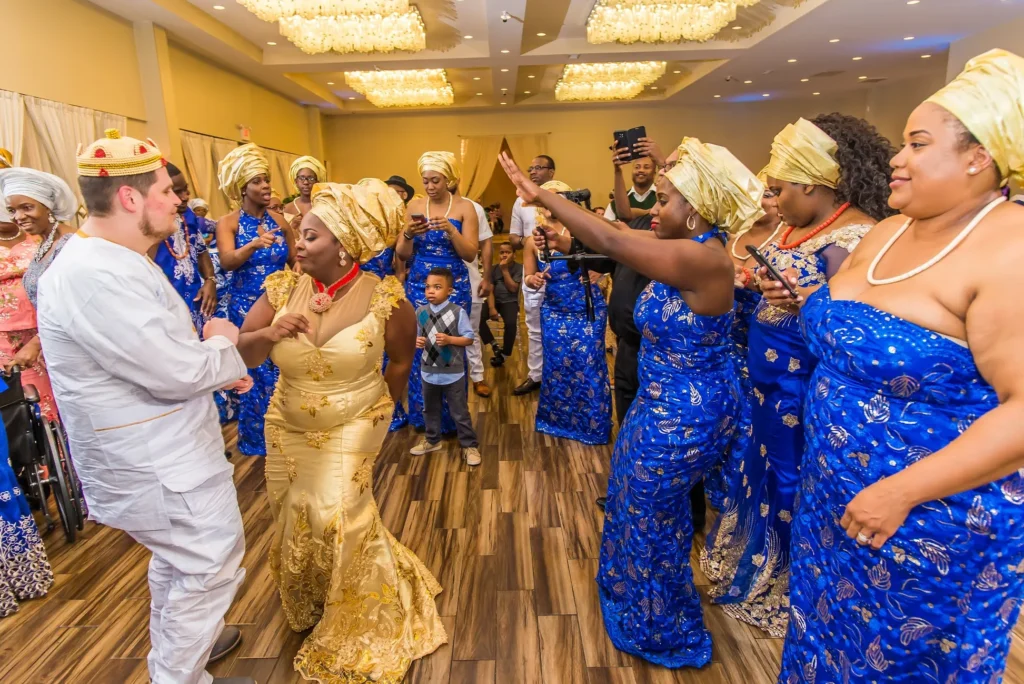
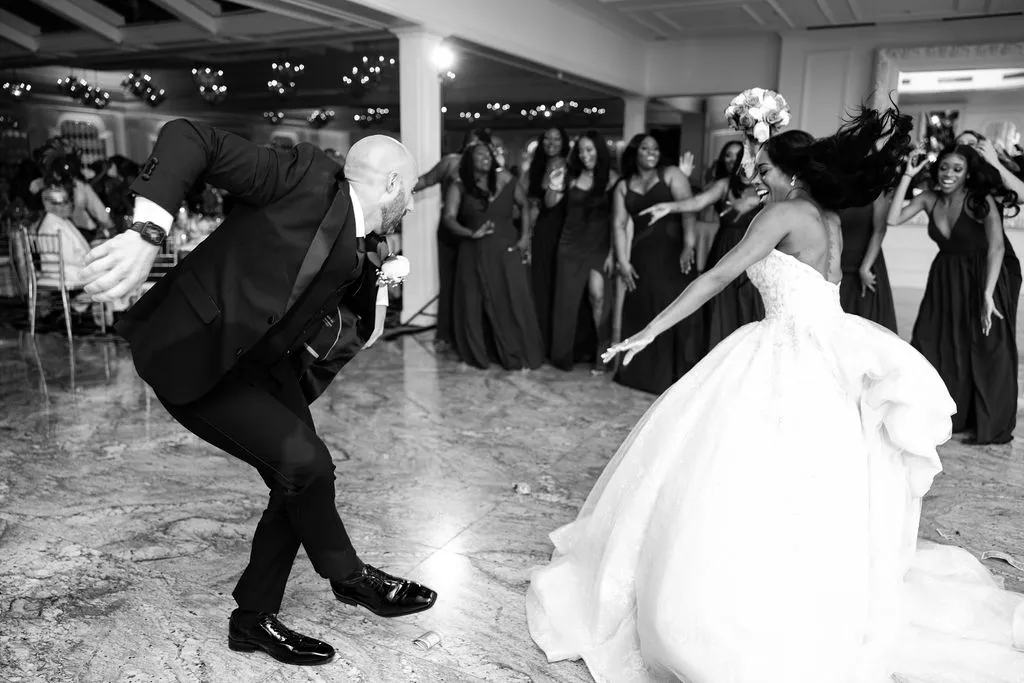

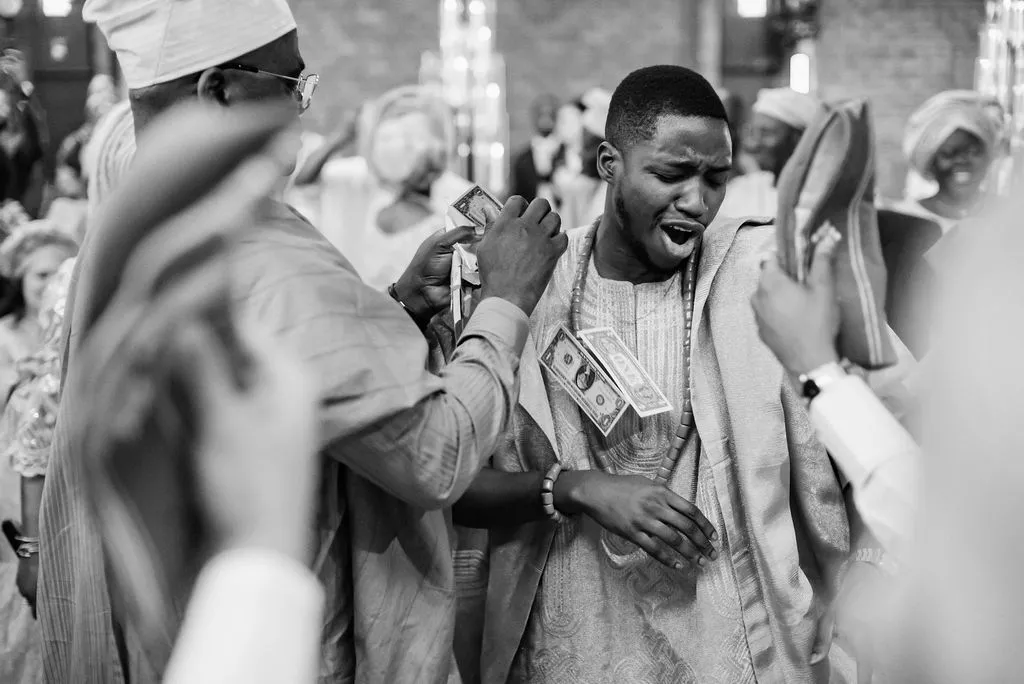
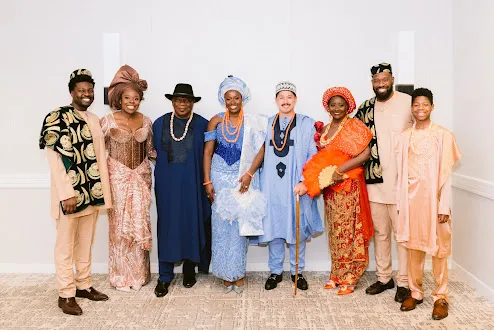
Nigerian Time is Real—Just Accept It
If the invitation says “2 PM,” expect things to really kick off around 4 PM (unless you attend any of our weddings!). Nigerians operate on their own timeline, and stressing about punctuality won’t help.
Instead, embrace the flow, relax, and remember: the party doesn’t really start until the DJ turns up the Afrobeats.
Embrace the Culture, Enjoy the Madness
Yes, Nigerian weddings are intense. They can be loud, chaotic, and overwhelming—but they’re also amazing.
There’s nothing like the joy of a packed dance floor, the warmth of family connections, or the pride that comes with embracing a vibrant culture.
If you go with the flow, keep an open mind, and dance like nobody’s watching (but they totally are), you’ll experience one of the most unforgettable celebrations of your life.
So lace up your dancing shoes, grab your Aso Ebi, and get ready—you’re in for the party of a lifetime.
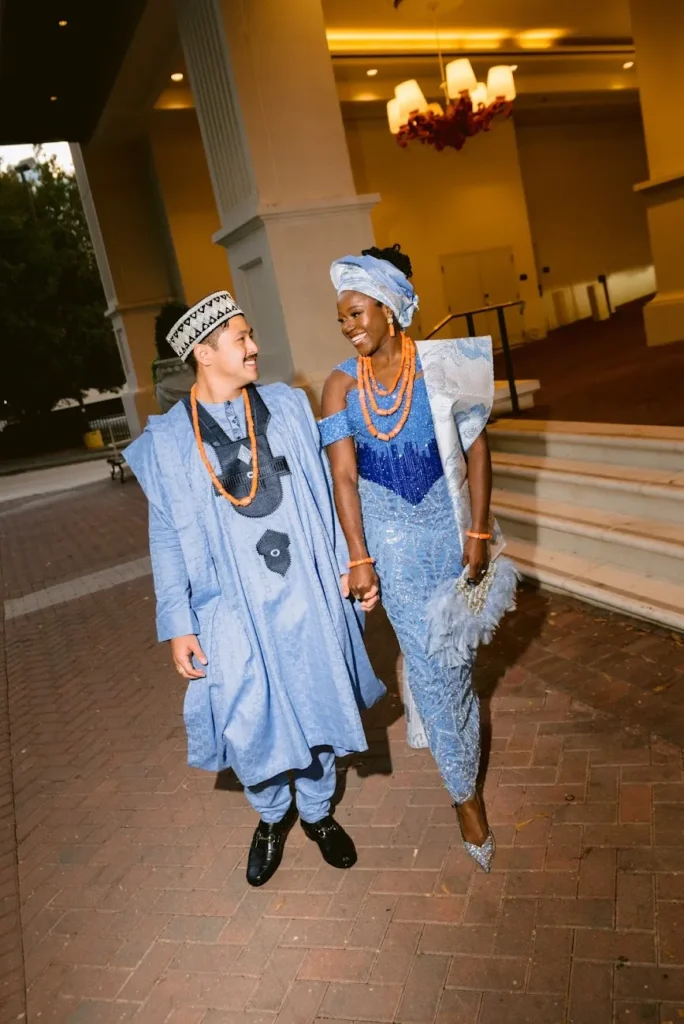
Ready to Learn More About Nigerian Wedding Traditions?
If you’re planning a Nigerian wedding or just want to understand the culture better, check out our blog for more tips, insights, and inspiration. From a detailed breakdown of traditional wedding traditions to a walk through of menu options, we’ve got you covered every step of the way! Check out our blog posts on Nigerian Wedding Ceremony Traditions
Nigerian culture marriage dating a Nigerian Nigerian culture marriage
